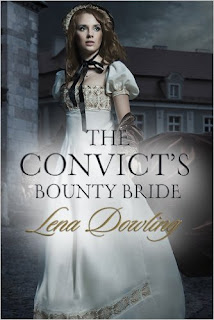4 stars
Off the Clock by Roni Loren was a refreshingly different take on the old sexually-experienced-hero-tutors-sexually-inexperienced-heroine trope, because both the hero and heroine are sex researchers/therapists.
When the reader is first introduced to them, Marin and Donovan are the only two students in a university building overnight. She's manning the sleep lab, and he's (supposedly) working late on a project. Marin helps Donovan out with his research (which is about female arousal) and they wind up having a one-night stand. Years later, they meet again when Marin takes a job as a sex therapist at the exclusive treatment facility where Donovan works. As her assigned mentor, Donovan quickly realises that Marin has a terrible poker face and little sexual experience, so he creates a checklist of sexual scenarios for her and selflessly offers to help her tick them off.
As the blurb implies, the premise could have gone terribly wrong. There's a power differential, but Donovan never pressures Marin into anything. He makes his offer only semi-seriously, and it's Marin who truly initiates things between them. Throughout the novel, I was impressed by the way Donovan respected and encouraged Marin's agency and autonomy. There were no power plays between them - sexual or otherwise - which was refreshing, especially in an erotic romance.
I also relished Off the Clock's frankness, which extended beyond the sexuality into its portrayal of mental health. Marin's mother had bipolar disorder, and this has defined her life in so many ways. She's scared that the illness lies latent within her, and so has always been careful to stay away from anything that might trigger it, including relationships. It's not uncommon to have a hero living a self-destructive lifestyle, but rarely is it put in terms of mental illness, as it is with Donovan. Nor is it a case where the love of a good woman has the power to heal or cure the hero; Donovan makes an effort to sort through the things contributing to his depression, so that he and Marin can have a healthy relationship.
There was also a subplot about Marin's little brother, who felt as though he'd lost his sister when she began to spend large amounts of time with Donovan. In romance, we tend to focus on the happiness of the central couple at the exclusion of those around them, and I liked the way this acknowledged that new romantic relationships can upset the balance of other existing relationships.
Even though Off the Clock subverts many tropes, there were also those that were not scrutinised. These, I felt, held the book back, particularly the 'malicious ex-girlfriend' character. Overall, a solid 4 stars.
When the reader is first introduced to them, Marin and Donovan are the only two students in a university building overnight. She's manning the sleep lab, and he's (supposedly) working late on a project. Marin helps Donovan out with his research (which is about female arousal) and they wind up having a one-night stand. Years later, they meet again when Marin takes a job as a sex therapist at the exclusive treatment facility where Donovan works. As her assigned mentor, Donovan quickly realises that Marin has a terrible poker face and little sexual experience, so he creates a checklist of sexual scenarios for her and selflessly offers to help her tick them off.
As the blurb implies, the premise could have gone terribly wrong. There's a power differential, but Donovan never pressures Marin into anything. He makes his offer only semi-seriously, and it's Marin who truly initiates things between them. Throughout the novel, I was impressed by the way Donovan respected and encouraged Marin's agency and autonomy. There were no power plays between them - sexual or otherwise - which was refreshing, especially in an erotic romance.
I also relished Off the Clock's frankness, which extended beyond the sexuality into its portrayal of mental health. Marin's mother had bipolar disorder, and this has defined her life in so many ways. She's scared that the illness lies latent within her, and so has always been careful to stay away from anything that might trigger it, including relationships. It's not uncommon to have a hero living a self-destructive lifestyle, but rarely is it put in terms of mental illness, as it is with Donovan. Nor is it a case where the love of a good woman has the power to heal or cure the hero; Donovan makes an effort to sort through the things contributing to his depression, so that he and Marin can have a healthy relationship.
There was also a subplot about Marin's little brother, who felt as though he'd lost his sister when she began to spend large amounts of time with Donovan. In romance, we tend to focus on the happiness of the central couple at the exclusion of those around them, and I liked the way this acknowledged that new romantic relationships can upset the balance of other existing relationships.
Even though Off the Clock subverts many tropes, there were also those that were not scrutinised. These, I felt, held the book back, particularly the 'malicious ex-girlfriend' character. Overall, a solid 4 stars.





